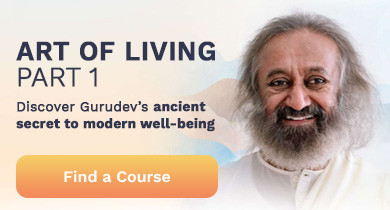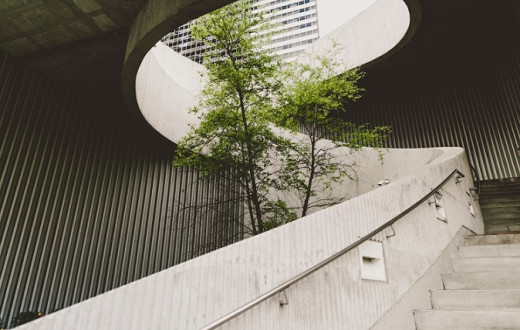
Less than 1% of Americans will enlist in the military to serve and protect, to make the ultimate sacrifice for their country. This is something most of us can't fathom. A veteran will leave everything they have ever known—family, friends, relationships, and even unborn children—to stand guard and serve. That, in and of itself, is difficult. Then add to the equation the stripping away of personal identity and rigorous physical and mental training to engage in conflict and violence. That’s a lot to carry.
The news constantly reports on the high levels of anxiety, depression, and PTSD in veterans. Veteran suicide is an epidemic.
Many veterans find themselves caught in a state of hypervigilance, which can hijack the entire nervous system and brain function. Their military training and lived combat experience keeps them on high-alert and unable to simply switch off their vigilance. This makes their reintegration into civilian and family life challenging. Not only does the veteran suffer, but the family does as well as they find the war has entered their home.
Hardwired to wake up and fight. But what about returning home?
While the military trains service members to be vigilant and prepared for conflict at any time, how can veterans flip the switch from military life to civilian life? And how can we address the anxiety, depression, PTSD, and high suicide rates that often follow?
While trauma is a shared human experience, what separates veterans from most of us is that they willingly volunteer to walk into danger and accept traumatic events as part of their job. However, expecting something and actually experiencing it are two different things. Returning veterans may carry both the physical and invisible wounds of war from the loss of a battle buddy; the moral injury of being commanded to carry out an act of violence that goes against one's nature; or even the experience of being assaulted by one of your own.
Dealing with loneliness amidst COVID
Veterans already face more social isolation than the average civilian. A recent study on social connectedness and mental health by the VA found a link between loneliness and higher incidences of depression and suicidal ideation in the veteran community. As Dr. Teo, a psychiatrist at the VA Portland Healthcare System who led the study says, “The isolation and loneliness worsen, and a vicious cycle is created, whereby loneliness leads to depression, which leads to more loneliness and so on. Breaking that cycle is difficult but important.”
And Leslye Moore, director of Project Welcome Home Troops shares that during COVID, “Veterans needed help more than ever. Veteran suicide has increased by 30% during the pandemic; and like the general public, their existing mental health diagnoses worsened with the isolation from their usual support communiites.” So it became more important than ever to continue to offer services that increase social connectedness and support mental health and wellness.
Breathing for life during Covid
Project Welcome Home Troops provides breath-based tools that decrease stress and anxiety, and restore well-being, focus, and a renewed sense of connection and purpose for Veterans and their families. Unfortunately, the program was only offered in person. When COVID hit in 2020, the program found itself at a crossroads: how to properly support veterans when everything has changed.
In May 2020, with a little innovation and attention to creating a safe space for the veterans, the program, called the “Power Breath Workshop,” was refreshed in an online format. Since that time, well over 45 Power Breath workshops have been offered online. In fact, going online has made the program more accessible to an increasing number of veterans.
“Veterans have embraced the online format,” Moore shares. “They feel more secure and less anxious about being able to join from the comfort of their homes.” Previous obstacles were cleared: travel times, social anxiety, dealing with traffic (a trigger for many veterans), and not having access to courses in rural areas.
The online format has become so successful and accessible that mental health providers from various Veterans Affairs hospitals and Vet Centers have begun consistently referring their veteran patients. They find that the progress the veterans make during the workshop expedites their healing and helps their counseling sessions become more productive.
What is the Power Breath?
We all breathe to survive. But what if we could use specific breathing patterns to reclaim our lives? What if the breath could release pent-up stress and trauma from the nervous system, restoring the system back to a stable, even positive state?
The Power Breath Meditation Workshop is offered by Project Welcome Home Troops in collaboration with the Art of Living Foundation. The core methodology was originated by Gurudev. Gurudev shares, “One can tell the health of a country by the way they treat their soldiers and farmers."
The workshop equips veterans with this evidence-based technique, which has been shown to lower stress and anxiety; and to restore better sleep, social connectedness, and mental health. The program has already reached 3,700 veterans and counting.
A 2014 research study with Project Welcome Home Troops was conducted at the University of Wisconsin-Madison and Stanford, and showed success with decreasing PTSD and anxiety.
Even more telling than the statistical data were the words the veterans shared afterwards.
“I feel like I’ve been dead since I returned from Iraq and I feel like I’m alive again.”
-Anonymous
Through rhythmic breathing patterns, participants are able to tap into a state of calm and deep rest. The first relief comes from regaining a quiet mind, even if for just a few minutes. Next, for many the insomnia—sometimes endured for decades—turns into more restful sleep. People have shared how they’ve started reconnecting after periods of social isolation. The transformation experienced is monumental.
“When I got out of the military I was really overweight. My hair was falling out. I don't even know how many medications I was on to help with anxiety and depression and stress. But since I started getting involved with Project Welcome Home Troops, I've been able to get off a number of those medications. By noting how I'm breathing I can alter how I'm feeling, and just that power in itself was so impactful for me.”
-Hannah R., United States Air Force
Turning a new page in the narrative on PTSD
Countless stories of healing through this breathing program have been told, and the Press has taken note. From Psychology Today to Stanford News and the Huffington Post, there’s no denying how impactful—and even surprising—this breathing technique is.
Many veterans and military who participate in the program have gone on to volunteer, fundraise, and even become advocates in their own communities. They have discovered that through the simple act of mastering their breath, they can master their lives.
“The Power Breath is something. It was very, very powerful emotionally, opening a door in the mind that had been tightly shut. I use it 3-4 times a week and incorporate it into my own meditations and routines. It’s given me the skills and confidence to attend a Veterans Parade (which I would always try to avoid), and get back out to nature hiking with my dog.”
-Philip C., U.K. Army Retired
Blazing a trail forward
The veterans program has touched many lives. Yet the mental pain and suffering among this population is immense. There is still so much to be done to reach out and offer services to more veterans and their families.
If you know a veteran who may be interested in this course, please feel free to share the website: www.pwht.org
Disclaimer: This content on the Art of Living Blog is not intended to be a substitute for professional medical advice, diagnosis or treatment. Always seek the advice of your physician or other qualified health providers with any questions you may have regarding a medical condition. Any links to third-party websites are provided as a convenience only and the Art of Living Blog is not responsible for their content.




















